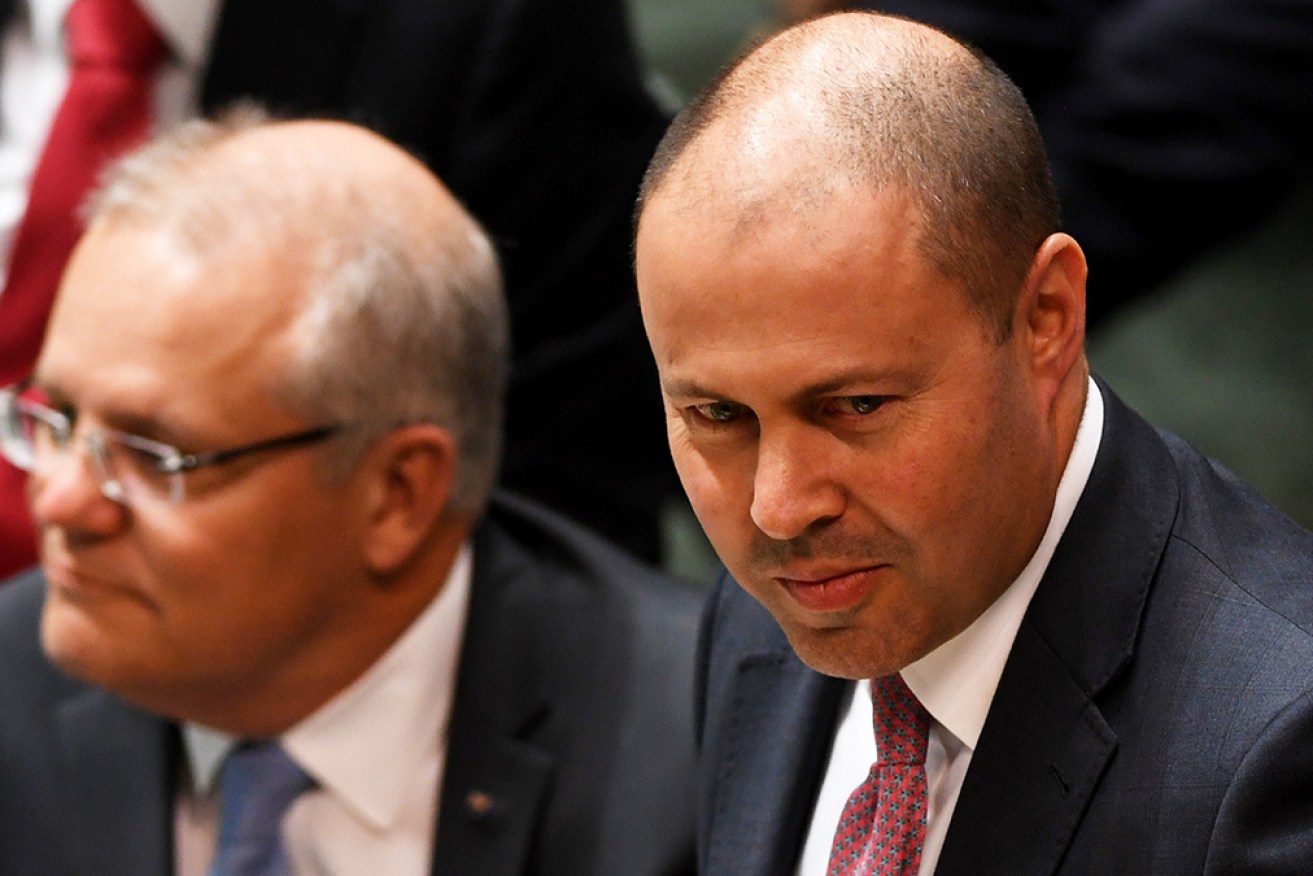Mid-year financial check has government’s marketing falling short


The PM and Treasurer clearly believed a budget surplus was the only promise that really mattered. Photo: AAP
The success of any marketing depends on the ability of the salesperson to be believed, and on that score Scott Morrison this year outsold Labor.
But the mid-year budget check has left the product shop-soiled.
Liberal Party research found the April federal budget was the single biggest contributor to the government’s “miracle” win in May, yet most of its assumptions haven’t lasted the distance.
But the Prime Minister and his Treasurer Josh Frydenberg clearly believe there was only one promise that really mattered – that was a budget surplus because it was the centrepiece of their re-election spiel.
Mr Frydenberg was keen to lay the blame elsewhere for almost every other “fundamental” in the budget failing his projections and targets.
The Treasurer said trade tensions weighed heavily on consumer and business sentiment with “forecasts for global economic growth and that of our major trading partners downgraded in today’s Mid-Year Economic and Fiscal Outlook (MYEFO)”.
“Despite these challenges, MYEFO demonstrates that the Australian economy continues to grow with the budget returning to surplus for the first time in 12 years,” he said.
And for that he can thank in huge measure the record price Australia is fetching for its iron ore exports, as well as his own refusal to heed the Reserve Bank’s call for more stimulus spending.
Even so, it is a long way from the “stronger economy” the Liberals promised back in April.
One number tells this story: The Budget forecast accumulated surpluses of $45.1 billion over the next four years. The update, nine months later, gave birth to a much smaller offspring, just $23.5 billion.
Still in surplus, but as economist Chris Richardson says the: “budget is in much better shape than the economy”.
That may not be saying much.
Labor’s Jim Chalmers says the budget update in a nutshell is “growth downgraded, unemployment higher, wages growth weaker, business investment dismal – the government’s economic credibility destroyed”.

Dr Chalmers said the government’s economic credibility has been ‘destroyed’. Photo: AAP
Labor is determined not to repeat the mistake of its shock election campaign loss where it made itself the focus, and not the incumbent government’s disunity and manifest policy failures.
The legacy of those failures is now being worn by the Liberals themselves.
The most politically dangerous is stagnating wages, which have hit consumer confidence and stalled the promised growth.
Some 60 per cent of the economy is consumption, and while the treasurer talks about infrastructure spending “bring-forwards”, he did nothing extra on Monday to get people spending again.
The government is paralysed by its own demonisation of debt even though it pretends it has not doubled net debt on its watch to $392 billion and has abandoned its promise to pay it all off by 2029-30.
Finance Minister Mathias Cormann, now in his seventh year in the job, is still blaming Labor and talking about paying off Labor’s debt.
The government next year will have to deliver on its promise to inject billions into the aged care sector.
The half a billion dollars in the MYEFO is about a billion short of what the sector says is needed now to keep nursing homes open.
And how long can Australians tolerate the unemployed carrying a much heavier burden than others in contributing to the budget’s bottom line?
For just $3 billion a year, the Newstart unemployment benefit could be raised by $10 a day to $50.
Chris Richardson says this is money that would be immediately spent in the economy for a net cost to the budget of just $1billion.
While it may console the treasurer to compare Australia to other weaker-performing developed economies, it ignores the toll taken by our lack of a coherent climate and energy policy.
This is a real factor in business under-investment in critical energy infrastructure, and politically, thanks to the catastrophic bushfires, climate change has made worries about budget surpluses or deficits pale into insignificance.
Mr Morrison will need to more than hone his marketing skills shaping next year’s budget.
Paul Bongiorno AM is a veteran of the Canberra Press Gallery, with 40 years’ experience covering Australian politics








